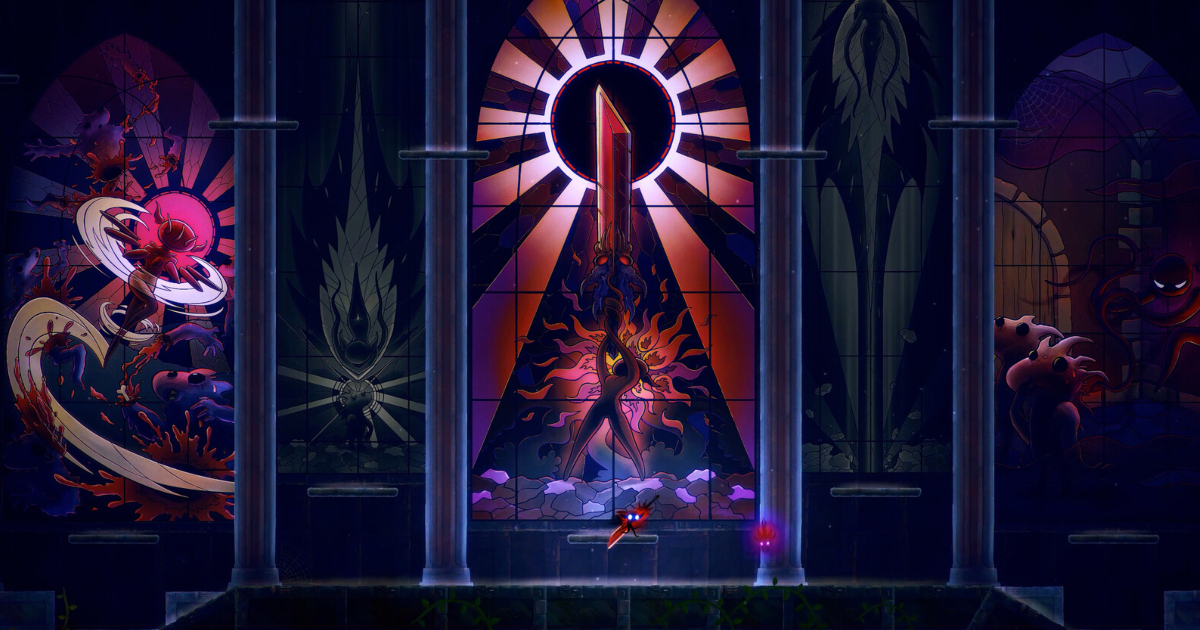Discoverability expert Simon Carless has shared some interesting insights into why some games, even quality ones, fail commercially in today’s market. It might be due to the oversaturation of certain genres, but the issue seems to be much more complex.

Doomblade
Carless touched on this topic in the latest GameDiscoverCo newsletter, using Doomblade as an example. It is a Metroidvania game developed by Muro Studios and published by Iceberg Interactive.
Despite a strong marketing campaign and good reception, the game was unfortunately a commercial failure. Here are some stats:
- Doomblade had only 20k wishlists on launch;
- Despite a 90% positive rating on Steam, it only had 96 user reviews (it has an average score of 83 on Metacritic);
- Iceberg Interactive used many marketing activities to push the game, including paid influencers, ads, and trade shows;
- It has sold less than 5,000 units since its launch on May 31.
So players who tried Doomblade seem to really enjoy the game, calling it a “solid Metroidvania” and even a “very underrated” title in the genre. But why couldn’t it reach a wider audience?
Is overcrowding a real issue?
According to Iceberg Interactive CEO Erik Schreuder, the genre is dominated by major hits like Hollow Knight, Dead Cells, Blasphemous, and Ori, so “these hits may lead to more devs starting dev projects on Metroidvanias, in turn leading to overcrowding.”
GameDiscoverCo has the so-called Hype score, which uses metrics like Steam followers and wishlists to estimate player interest in unreleased games in specific genres. For example, Hollow Knight: Silksong has “almost 10x the Hype of any other Metroidvania,” which is another indicator that the genre is really top-heavy compared to other Steam tags.
But the underperformance of Doomblade cannot be reduced only to the overcrowding issue. Here are some other possible factors, indicating this is a complex issue:
- Questionable release window;
- As Carless assumed, the bright visual style could have played against Doomblade with the core Steam players, who “love ‘grimdark’ titles”;
- Huge appeal of older hit games in the genre.
Speaking of the latter, here is another interesting takeaway from the article — even if older titles may “seem old to you, they’re new to many Steam players.” As Carless pointed out, Blasphemous and Dead Cells are owned by only 1.19% and 4.04% of the entire Steam audience, respectively, vs. 71% for CS:GO and 45% for Dota 2.
So there are still millions of people who have never tried these games, but if they wanted to, they would most likely choose proven hits, especially given they are often 50-75% off.
Can publishers do something about it?
Here is a good point: “all premium PC/console publishers launching new games are doing a similar thing with each game launch, but with 100x variance in a game’s final sales.”
And publishers should be prepared for this new normal, which means more titles with lower-than-expected sales. Carless noted that it is a supply/demand issue: “Most games don’t sell amazingly — even good ones — because there are lots of games out there.”
It is hard to predict 100% whether a game will get big, so it is all about finding the gems (including in underserved genres). It is also not superfluous to reconsider your typical strategy by questioning the benefits of investing in trade shows or paying influencers.
The success of many Steam hits is driven by organic excitement, not marketing campaigns. But it is worth noting that publishers can use these big games in their portfolios to compensate for the failures of multiple good, but commercially unsuccessful titles.
If you’re publishing lots of games, it’s ultimately a fishing expedition. If you’ve baited your hook right, in the right genres and with the right costs, you’ll come out ahead. But along the way, you can expect more ‘great game, didn’t get enough reach’ situations than you would ever want to have, sadly for both you and the devs…
founder of GameDiscoverCo
More data on Doomblade, the Hype score of Metroidvania titles, and the issue of many games failing to reach a wider audience, can be found in the full GameDiscoverCo article.

